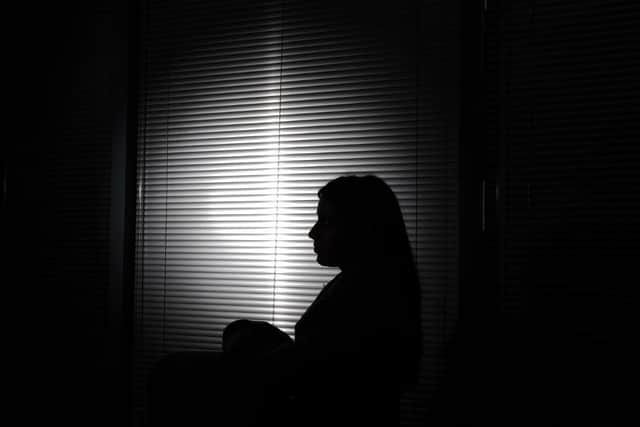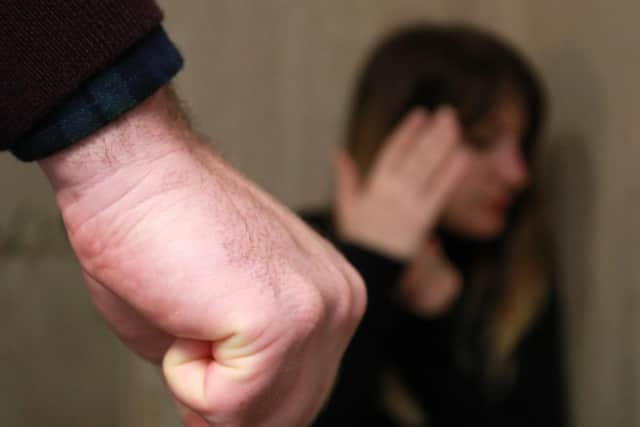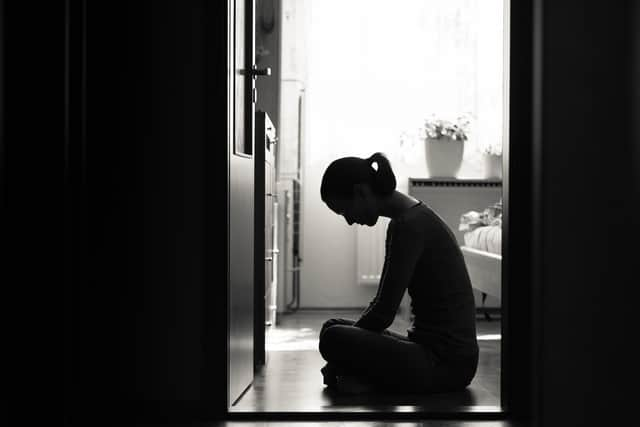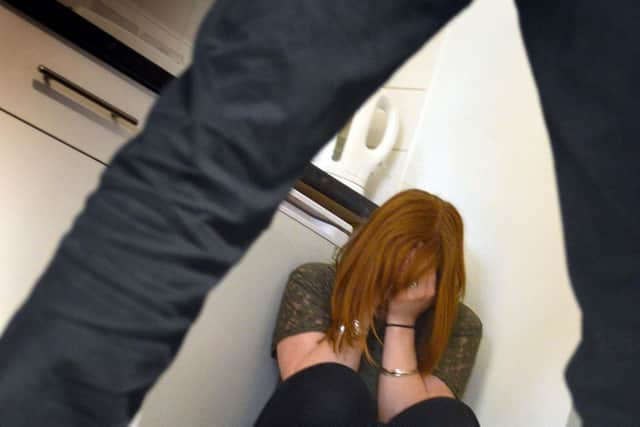Helpline calls over domestic abuse soared during lockdown as report warns BAME victims are 'left on the scrapheap'
Various figures have showed that while calls to police over domestic abuse rose only slightly during lockdown, calls to helplines run by charities soared, suggesting victims were seeking help more discretely.
It confirms months of warnings from various charities that they were expecting a rise in cases.
Advertisement
Hide AdAdvertisement
Hide AdMore than 40,000 calls were taken by the National Domestic Abuse Helpline since the beginning of the lockdown, it was revealed this week.


Meanwhile, charity Refuge, which normally logs 270 calls a day, saw a 77 per cent increase during June.
More locally, York-based charity Independent Domestic Abuse Services (IDAS) also saw the number of calls rise by 10 per cent week by week over the lockdown period - although spiked by 69 per cent in one week - as well as "significant increases" in visits to its website and online live chat services.
However, the same charity said it also saw decreases in the number of people requesting support, which they said was indicative of victims seeking help more discretely due to there being fewer escape options during the lockdown.
Advertisement
Hide AdAdvertisement
Hide AdPolice forces saw small rises in domestic abuse-related calls. West Yorkshire Police figures showed a seven per cent increase in the daily average number of calls regarding domestic incidents in the period of March 17 to July 5.


Recent Freedom of Information figures from South Yorkshire Police show a small rise of five per cent in domestic abuse-related offences reported in the first five weeks of lockdown compared with the same period the year before, while North Yorkshire Police saw a nine per cent increase between March and May this year compared with the same months last year.
No recent figures exist from Humberside Police, although the force actually reported a decrease in domestic abuse calls in the first week of lockdown compared with the same period the previous year.
It comes as a report this week warned that women in BAME (Black, Asian and minority ethnic) and migrant communities were being "left on the scrapheap" when it came to support for domestic abuse.
Advertisement
Hide AdAdvertisement
Hide AdThe We Are Invisible report published by The View magazine, which advocates for women's prison reform, reported that six in 10 victims fleeing domestic abuse in shelters were BAME, compared with 13 per cent of the overall population.


The report said there was "little data" to confirm what is known about BAME victims, but listed "specific barriers linked to stigma in the community following disclosure", "being ostracised or believed", "a lack of accessibility to services" and "cultural lack of distrust in police forces" as reasons they may not report their abuse.
"BAME women are left on the scrapheap when it comes to existing support provision by the third sector and statutory agencies meant to support them into move-on housing after they have resided in a shelter. Agencies appear completely blind to their needs."
In a Police and Crime Panel last week, West Yorkshire Police and Crime Commissioner Mark Burns-Williamson said he had been funding a charity in Bradford providing affordable legal advice and support to BAME victims of abuse, while the Safer Communities Fund was currently allocating grant funding across West Yorkshire to deal with similar issues.
Advertisement
Hide AdAdvertisement
Hide AdA spokeswoman for IDAS said: As the coronavirus pandemic took hold, some people were locked in with their abusive partners with very little opportunity to seek help or support.


"Since lockdown measures have begun to lift we have seen an increase in calls and requests for emergency accommodation. On average, calls to our helpline have increased by 10% week by week over the lockdown period. However, in some weeks the requests for support have been as high as 69% above last year’s week by week totals.
"Our teams have been working tirelessly to make sure support is available for anyone who is affected by domestic abuse and we have rapidly adapted to deliver support remotely using phone and video calls. If your partner, ex-partner or a family member does of says things to hurt or harm you, we would urge you to get in touch with us."
Following this week's figures, director of operations at Refuge Jane Keeper said: “We anticipated lockdown being a very challenging time for women living with abusive partners.
Advertisement
Hide AdAdvertisement
Hide Ad“While we cannot draw immediate conclusions from this, what it does tell us is that women have remained with their perpetrators during lockdown, which may explain why we’ve seen an increase in the numbers of concerned third parties who have contacted us to seek support.
“As restrictions have begun to ease, which has given women space to make plans to leave their abuser, we have seen a large rise in the numbers of women requiring emergency refuge accommodation.”